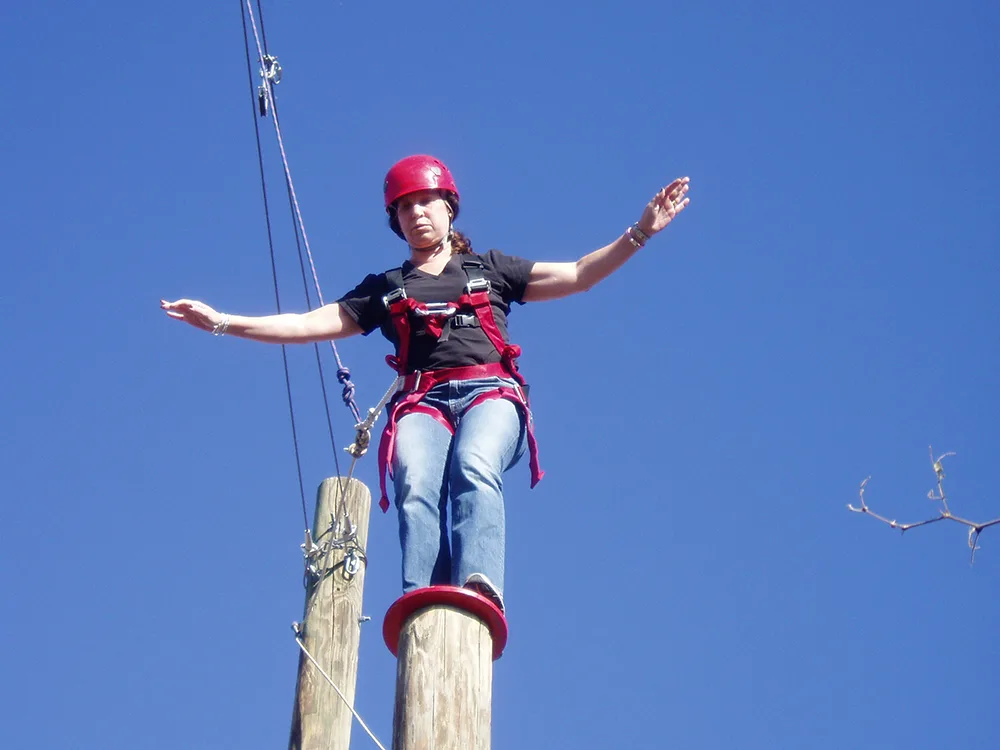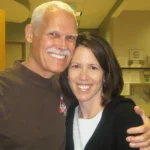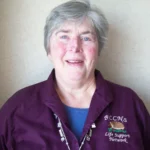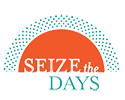Walking Her Way Through Cancer

For Carrie Wells, a powerful and positive part of surviving breast cancer was attending a retreat with women who shared similar journeys. Being surrounded by other survivors was a chance for connection, education, relaxation and healing. So moved was Carrie by the retreat experience, she felt compelled, to help other cancer survivors find equally valuable opportunities. Carrie launched SurvivorsRetreat.com, a website that offers a comprehensive, searchable database of cancer survival.
Listen
Transcript
Hi, I’m Carrie Wells, and I’m a full time mom and have a full time job, but my passion is for my cancer survivorship projects. I truly feel like I’m an ordinary person who has had the opportunity to do extraordinary things.
I’m I’m a breast cancer survivor. It’s been nine years. And when I was diagnosed, I had the opportunity to experience a lot of the different facets of breast cancer survivorship. I went through several biopsies and examinations. I had a mastectomy.
I went through chemotherapy treatments, through radiation treatments reconstruction, and Group support, retreats, whole nine yards. Tell was recovering from all of my treatments, I was I was looking for something to do with all my newfound knowledge and I joined clinical trials and quality of life studies and tried support groups and what I found the answer for me was going to a retreat.
I researched several places online, found a retreat that was in Arizona. It looked like a spa and something I had never done before. I gave it a try. I applied for this particular retreat and it was for cancer survivors, women, who are looking for the tools to become advocates in their community, to be able to do good for others.
And so I found it was a life changing experience. It was something that totally unexpected much greater. Rewards and I could ever have imagined I would have received went out to Arizona, spent four days with a group of about 100 women, doctors caregivers, and realized that I was in a community of survivorship.
One of the goals of this particular retreat was to give people tools to be able to do things back for their community. And my project that I took away from that weekend was to build a website or to build a database of all the retreats that were possible because I felt it was such an important thing that I did for myself, and it was so difficult for me to find it that I thought, I wanted to make it easier for others.
And so I had some time off from work and I sat there in front of the computer and I researched and built a huge pile of information of all of the retreats that I could find in the U. S. for adults who were survivors of breast cancer. And I talked to several people about putting it together in a book or in a paper form and eventually decided to put it on a website.
And The website is SurvivorsRetreat. com I don’t know of any other website that is quite like this. I’ve been told that there is nothing that is that complete and helps as many people find a retreat for them to attend.
When I was diagnosed with cancer, I really didn’t feel that I was any different than anybody else. I realized that so many people have that cancer diagnosis, that everybody knows somebody who has cancer.
And it isn’t that extraordinary anymore. I was just an ordinary person with a cancer diagnosis. And being a survivor, I’m still just an ordinary person. And one of the things that I chose to do was To do extraordinary things, to see what I could do to differentiate myself from any other ordinary person.
And so I have a list of things that I enjoy doing and they revolve around cancer survivorship. So I wouldn’t say I’m thankful for the cancer to give me the opportunity, but I think I do try to look to become a little less ordinary, by doing some of these things that I do.
It’s hard for me to say that. How important it is to help others. Because it does sound so predictable. It sounds like what every cancer survivor should be doing. But that’s really not me. And I don’t want to say that about myself. I do these things because I really enjoy it. And it just seems to make sense for me.
I’m very thankful that I had an opportunity to be treated so well when I was going through my treatments? A lot of times I’ll meet cancer survivors and they’ll tell me they feel like a victim. that’s what I hear often. It’s been nine years, and I know that at the time I did feel like, why is this happening to me? I felt like I was a victim. I really did feel like someone was just marching over me and stomping me out, that there was nothing for me to do. But that was such a long time ago, and I’m not that person anymore, because I really didn’t let that diagnosis overtake me.
I really didn’t stop my life when I was told I had cancer. For And I’ve done so many things since that, and I think that’s that’s how I’m defined. More on my volunteer work or the walks that I do every year. Walking 40 miles, 60 miles, this year walking two walks. That’s more of me. And so to ask me about being a victim, I really don’t remember that as much anymore, because it’s really not in my life.
And sometimes it’s even hard when I volunteer to talk to people because they’re so upset and they feel like it’s the end of the road for them and it’s so hard for me to show them that it’s not. Because at that point, you can’t see that there’s another, that there is any way out. You become very short sighted.
You’re thinking of one treatment to the next, one procedure to the next, when can I eat my next meal when this procedure is over so I can have something to eat? Your life is so short term. And now my life is much more long term. I have so much more to look forward to just year after year with raising the money for the walks and participating with all the people that I know, getting my family to get involved with me, to walk with me, and that’s so important to me, to see them join in, because they’re not survivors of cancer, yet they join in and have just as much energy for it as I do.






